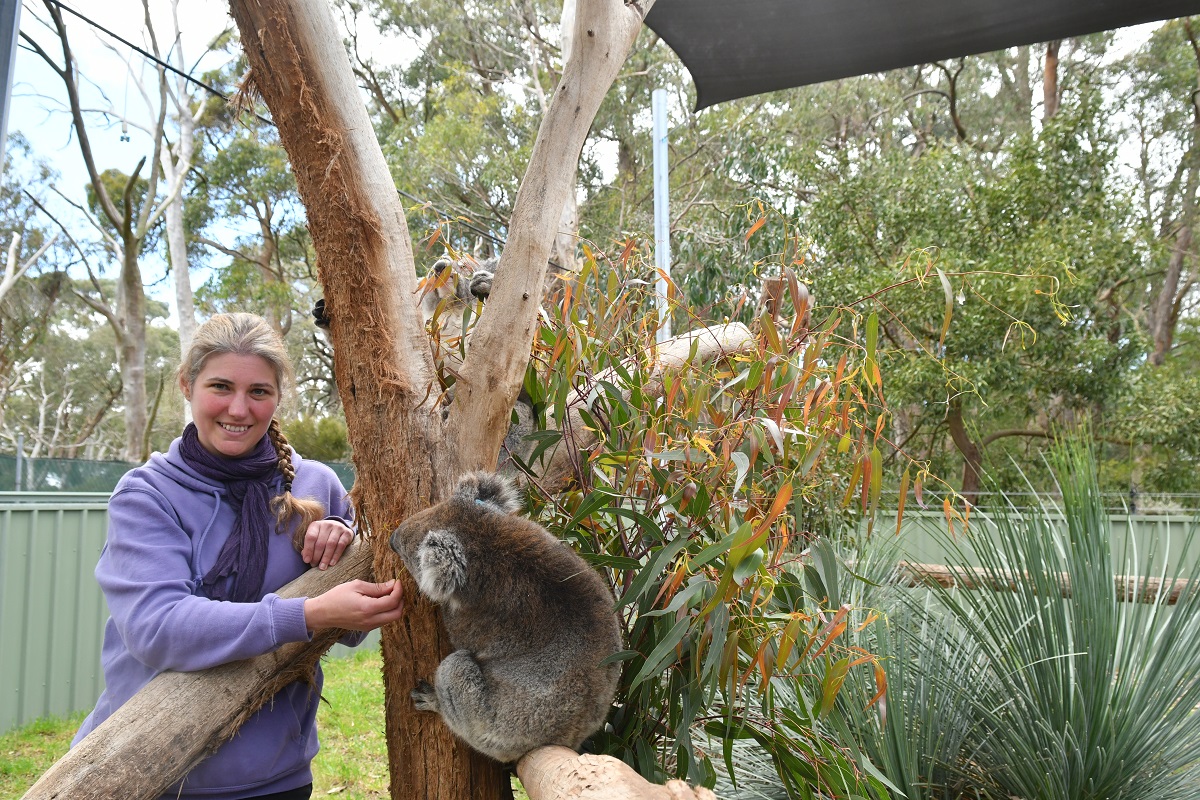
Studying animal behaviour has been a life-long focus for Dr Diane Colombelli-Negrel – and we spoke with her about her fascinating interaction with koalas, all manner of birds and her work as South Australia’s only Penguin Ecologist.
What is your role and what does your work focus on?
I’m a lecturer in Animal Behaviour and I also lead the BirdLab at Flinders University. Our research group identifies ecological and behavioural processes that influence population dynamics and evolutionary adaptations to environmental change. The BirdLab study systems span from songbird to seabird species and now include mammals such as koalas, to which we apply multidisciplinary approaches including behavioural observations, non-invasive techniques and experimental research. Our research has a strong community aspect to enhance local culture and benefit broader society through research-integrated education.
My current research focuses on the extent to which prenatal experience affects the development of postnatal behaviours and fitness. This research specifically tests for the conditions that limit embryonic learning and how embryonic learning affects lifetime fitness.
What journey brought you to this point in your career?
I’ve known that I wanted to work in the field of Animal Behaviour since I was 7 years old. A teacher during my undergraduate degree sparked my passion for animal communication, which led me to move from France to Australia to study Australian songbirds. I did a PhD in Biological Sciences at Flinders University on the evolution of anti-predator responses and vocal communication in superb fairy-wrens, which I completed in 2008. I then worked for 10 years as a university administrator, while doing research during my spare time. In 2019, I became a full-time lecturer.
What is something you are most proud of?
I would say it’s my discovery of prenatal learning in birds. When I first started working on the superb fairy-wrens, I was told that nothing noteworthy would come out of my project. To the contrary, my research provided the first evidence for specialised sensorimotor learning in non-human embryos and opened new research avenues to look at early-life effects of auditory learning. I’m also proud to be the only Penguin Ecologist in South Australia. Recently, this project extended to merging arts and science with the development of ceramic little penguin nesting modules, for which I was invited to give an inspirational talk about women in science at the Kangaroo Island Wildlife Carnival in October 2021.
What does a normal day look like for you?
I still spend a lot of time in the field and hope I will continue to do so until the end of my career. I’m very lucky to visit exotic places for work (such as the Galapagos) or isolated islands that are restricted to the public, and most of the time I’m surrounded by nothing but thousands of screaming birds.
What do you hope people learn from your work?
I hope people will learn to follow their passion, because there is nothing more rewarding. Despite the challenges of having non-research employment for many years and people initially criticising our embryonic learning discovery, we made a breakthrough discovery that broadened our knowledge of learning in animals.
How do you like to relax or spend your spare time?
I spend all my spare time with my horses, either training, trail riding or simply enjoying their company. I find this is better than meditation as horses have a magical way to invigorate and enrich my life.

